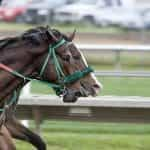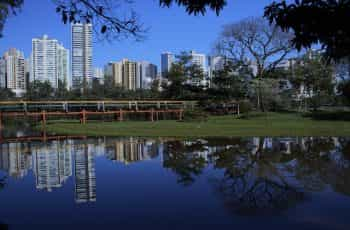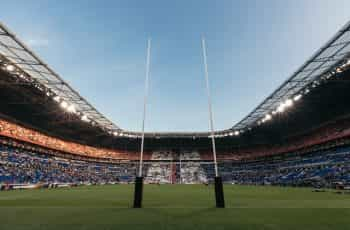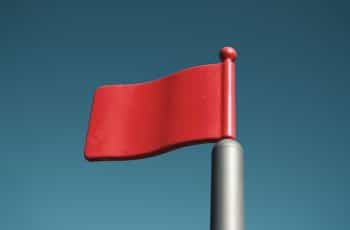Horse Race Betting Fills Major League Void
Betting on horse racing has faced renewed interest after the suspension of major sports leagues has left sports bettors hungry for wagerable competitions. Unlike many other sports leagues affected by the coronavirus, the minimal interaction between humans in horse racing has allowed regulators to approve of the sport’s continuation.
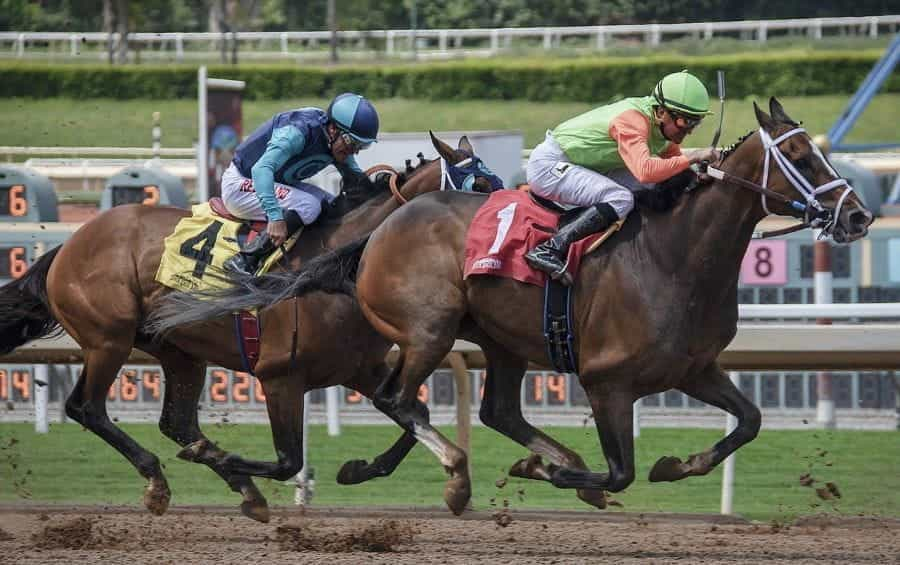
Horse racing has seen an unexpected surge in viewership as it remains one of few sports to operate amidst widespread suspensions of major sports leagues. ©Clarence Alford/Pixabay
However, the industry has not entirely been unaffected, with May’s popular Kentucky Derby being pushed back to September this year. Additionally, New York’s Aqueduct Racetrack was forced to suspend racing over the weekend after a worker who cared for the animals tested positive for the virus.
Despite this, both the New York State Gaming Commission and California’s Horse Racing Board approved of races to continue as long as crowds were not permitted at the tracks. As a result, NBC Sports have begun to air “Trackside Live” on Saturdays and Sundays, TVG’s signature horse racing program.
On the weekend before its suspension, more than $17.5 million was bet on races at Aqueduct between Friday and Sunday. In a sign of its growing popularity, the TVG Network reported that wagers increased by 75% on Saturday and Sunday compared to the same two days in 2019.
The FanDuel Racing app also saw a surge in downloads over the same period, having been downloaded more times over the weekend than it had in the previous three months. FanDuel, which is owned by TVG’s owner Flutter Entertainment, intended to launch the app in time for the Triple Crown Races.
To boost the integration of live betting on sports, anchors were asked to simplify their explanations of races by NBC Sports so that newcomers could make more informed bets. This could see a huge boost in interest in the sports, as NBC Sports is aired in 83 million US homes while TVG airs in 45 million homes.
Many in the racing industry admit to being pleasantly surprised, including TVG’s CEO Kip Levin. In a recent interview, Levin expressed his belief that the increase in interest was likely due to people “looking for a distraction”. However, industry insiders are not getting too comfortable, with Levin adding that regulators can stop the race at any moment.
That being said, New York’s racing officials have still not commented on whether it will cancel the Preakness and Belmont Stakes – the other two races of the Triple Crown. According to spokesperson for the New York Racing Association, all options are still on the table, adding that the Belmont race still may continue in June.
The industry is also in a privileged position as races without spectators need far fewer people to operate than other sports. Also, online wagering on horse racing is legal in 41 states, whereas only a handful of states offer legal online wagering on major sports league events.
Additionally, of all the revenues generated from horse race betting, roughly 90 percent of money is made through off-track wagering. In a time when online gambling is seeing a surge in popularity, the racing industry seems an unlikely winner. However, not everyone is pleased with this, with a number of interests questioning the decision to continue the events.
Criticisms of the Continuation of Horse Racing
As most Americans continue to stay home to limit the spread of the coronavirus, some employees of the nation’s tracks have expressed concerns that their track workplaces may not be as safe as believed. Some have even expressed that the current monopoly of the sports betting market could be driving regulators to downplay the risks.
One major racetrack employee explained that some workers are required to sit within three feet of jockeys, well under the Centers for Disease Control (CDC) recommendation of six feet. “We’re all basically on top of each other,”” he said, adding that they may be risking the health of their vulnerable relatives. “It’s terrifying.”
However, a spokesperson for the Stronach Group, a corporation that owns several major horse tracks has denied that workers are at risk and argued that the tracks are following CDC recommendations.
“We are operating in full compliance with all government and local health orders while ensuring the protection of the essential personnel that care for the nearly 7,500 horses that are stabled at our facilities.”– Tiffani Steer, Spokesperson, Stronach Group
While the Stronach Group continues to run most of their major tracks, some tracks have voluntarily suspended racing activities despite not being ordered to do so. One such track is Sunland Park in New Mexico, who made the decision out of “an abundance of caution and to promote social distancing”.
Even Gary Stevens, one of America’s most accomplished jockeys, admitted that riders may have cause for concern in working the tracks now. When asked if he was sure that continuing to race during this period was safe, Stevens admitted, “I would have been a week ago. I’m not so sure if I would be now.”
